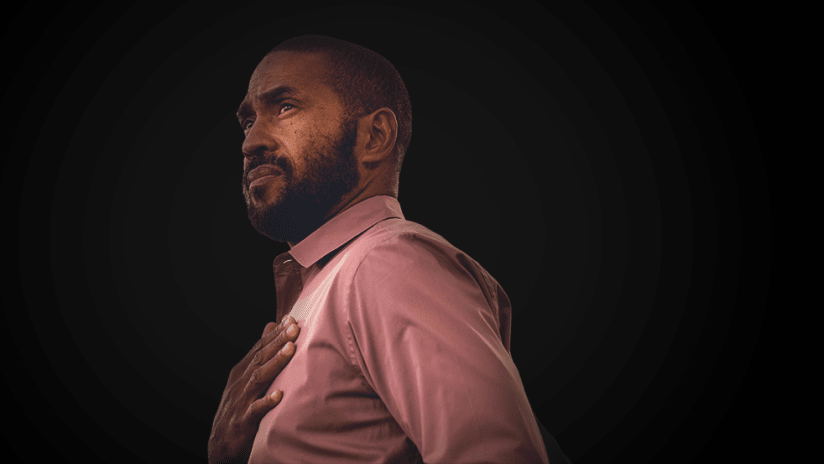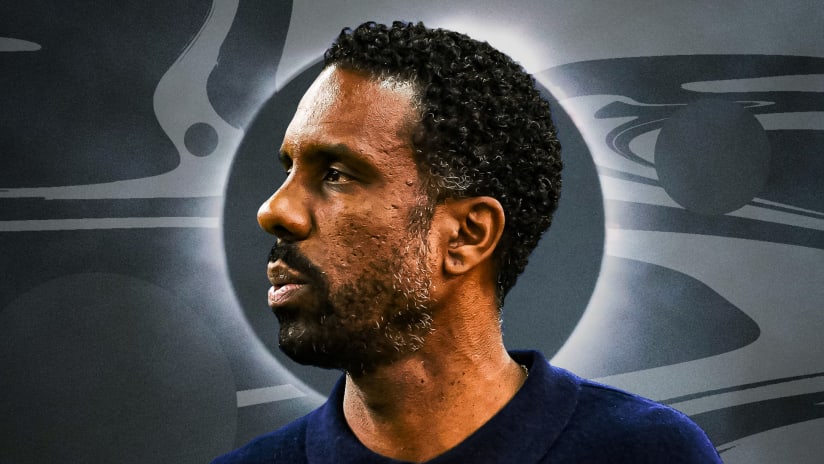Robin Fraser wasn’t born in the United States; the Colorado Rapids’ Jamaican-born head coach spent his early childhood in Kingston before emigrating to Miami during his sixth-grade year. Shortly after his arrival, he received a jarring introduction to racial tensions in America.
“I left Jamaica at Christmas break and visited relatives in New York and Canada, then started school on whatever, January 4, 5,” Fraser recalled to MLSsoccer.com on Wednesday. “It was my first experience in school here, and throughout the day there were whispers of a fight that was going to happen. And at the end of the day there was a fight between the Blacks and the whites.
“I looked around and thought, ‘Huh, this is what America is like. This is very odd,’” he added. “To actually witness it on day one, this huge disparity between people for no apparent reason other than the color of their skin, that was hard for me to wrap my head around.”
Now 53, Fraser went on to craft a distinguished soccer career as a defender and then a coach in his adopted land, plus a successful stint in Canada as Greg Vanney’s top assistant at Toronto FC. The underlying factors continue to fester, as the murder of George Floyd brought them flooding back to the forefront of the national consciousness last month.
“I think the way to put it is that you’re very aware that you're Black in America,” said Fraser, one of only two Black coaches in MLS at present. “I’ve not had too many stories of really overt racism, but you just have been around it enough and seen it enough that you're always aware.
“You’re always aware that you're Black, which is interesting because I was talking to a white friend who was saying, they're never conscious of being white, or rarely conscious of being white – only perhaps if they're in a very Black neighborhood. But this is the existence that Blacks live. You’re always aware, and it stinks. It stinks. It’s rather obvious to say, but it’s not great.”
Racism has been called the nation’s original sin, and it’s telling that as successful as he’s been, Fraser can never afford to forget it.
“You don’t want to get pulled over in a white neighborhood. What are the implications of that going to be?” he noted. “You’re just very aware of being a Black person in the US, because I think without a doubt there's always been a feeling that, it’s almost like you're an outsider at times. You’re an outsider living in someone else's country.”
Fairly or not, Fraser has long been a standard bearer as one of the few Black coaches in MLS. He’s one of an even smaller number to rise through the domestic landscape as opposed to arriving from overseas like Thierry Henry or Patrick Vieira.
So, his experiences can be particularly noteworthy: Though Chivas USA was widely perceived to be a dead man walking by the time he took the helm for a two-year stint in 2011, it wasn’t until August of last year that another club handed him the keys. Since the Rapids are 7-2 since he took over and have quietly become one of the league’s most enjoyable and effective teams, it’s easy to wonder what took so long.
Still, Fraser strikes a hopeful tone about society’s current state. Perhaps it can be attributed to his five years in Canada, where he appreciated his time in Toronto’s diverse and largely-tolerant civic culture.
“I took the subway to training every day, and it struck me very early there how easily people of different races interacted,” he explained. “For me it was different than what I had seen in the US. It just seemed like people of different ethnicities just melded and were able to flow seamlessly. I'm sure there are racial issues there, like there are just about everywhere else. But I definitely got the sense that they are more inclusive … I remember noticing that within the first six months, always thinking, it's really cool how in Canada, people just are.”
Most recently, he’s taken heart from the broad spectrum of Americans who’ve been shocked into newfound awareness and action by Floyd’s killing. To wit, he cites the moving words of Dr. Cornel West in an appearance on Anderson Cooper’s CNN show this week.
“He mentioned the fact that when we see the number of white faces that are now involved in these protests, you feel hope. Because think once upon a time, this was very, very much a Black problem,” said Fraser. “When I see the amount of diversity in the crowd, when I see that people are genuinely interested in change – and people of other races are genuinely interested in change – it feels like there is something different going on.
“It starts with your own conduct,” he added. “Where you have an opportunity to do be right, you do right. And where you have an opportunity to lend your voice to the cause, you lend your voice to the cause. I just think that even if you're marginally involved, even if you're just slightly involved somewhere, the more people that appear to want change and the more people are willing to demand change, then the sooner change is going to happen."














